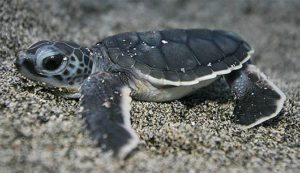Why do tortoises live so long ?
 If to answer very briefly, the turtles live a long time, because they are a) cold-blooded and b) large. Let us explain these two answers. Life is supported by chemical reactions. To the creature remained alive, the chemicals in it must constantly turn into each other, or, as they say, exchange.
If to answer very briefly, the turtles live a long time, because they are a) cold-blooded and b) large. Let us explain these two answers. Life is supported by chemical reactions. To the creature remained alive, the chemicals in it must constantly turn into each other, or, as they say, exchange.
The speed of these transformations, or metabolism, is directly related to how active the animal can be, how much food it needs to eat, how much it needs to sleep and how much it will live.
The rate of metabolism depends on the size of the animal. In small animals, the surface of the body is large relative to the volume, and with increasing size of the animal, the surface area grows slower than its volume.
For example, an elephant has about 0.03 square centimeters of the body surface per cubic centimeter of body volume, and the hamster has as much as 0.6, that is, 20 times more. Through this large surface, the heat that the hamster diligently produces is evolving, so the hamster has to eat and burn far more nutrients per unit of body weight than the elephant.
The metabolism of the hamster inevitably goes faster, because it eats a lot and generates a lot of heat, and from the processed food it is quickly disposed of and immediately absorbs the new one.



























